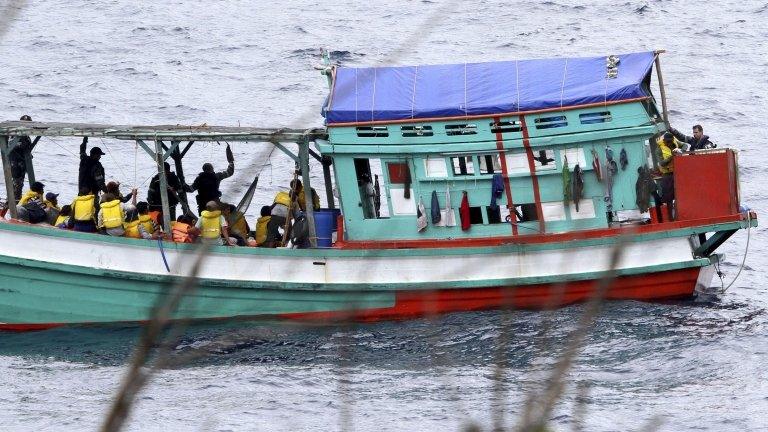Australia confirms Cambodia asylum deal
- Published
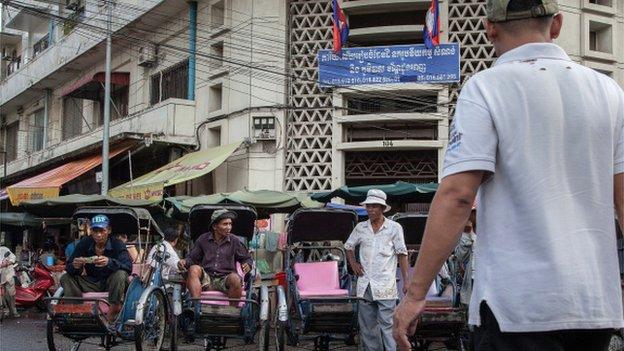
Cambodian officials say transferees from Australia could integrate into society - but critics disagree
Australia has confirmed it will sign a deal with Cambodia to resettle refugees in the South East Asian nation.
Immigration Minister Scott Morrison, who will sign the deal in Cambodia on Friday, said only those who chose to go to Cambodia would be resettled there.
Support would be given to make them "self-reliant", he said.
The deal has drawn immediate criticism from rights groups who say it will not afford refugees sufficient protection.
They accuse Australia of failing to meet its international obligations by sending refugees to an impoverished nation ill-equipped to handle them.
Under current policy, asylum-seekers who arrive in Australia by boat are detained and processed offshore. If found to be refugees, they will be resettled outside Australia.
'Dumping ground'
Few details of the deal have been released, including how much Australia will pay Cambodia for the resettlement.
"Anyone who chooses to go to Cambodia will have chosen themselves to go to Cambodia," Mr Morrison said, adding that they would be given support to become self-reliant "as quickly as possible".

Australia and asylum
Asylum seekers - mainly from Afghanistan, Sri Lanka, Iraq and Iran - travel to Australia's Christmas Island by boat from Indonesia
The number of boats rose sharply in 2012 and early 2013. Scores of people have died making the journey
To stop the influx, the government has adopted hard-line measures intended as a deterrent
Everyone who arrives is detained. Under a new policy, they are processed in Nauru and Papua New Guinea. Those found to be refugees will be resettled in PNG, Nauru or Cambodia
Tony Abbot's government has also adopted a policy of tow-backs, or turning boats around
Rights groups and the UN have voiced serious concerns about the policies and accuse Australia of shirking international obligations

The Phnom Penh Post, external reported that Australian officials had visited properties in the nation's capital and the coastal southwest province of Preah Sihanouk for possible resettlement sites.
Cambodia's Immigration Department Director General Sok Phal told the newspaper that refugees would be successfully integrated into society.
But Australia's Green Party senator Sarah Hanson-Young said Australia was treating Cambodia as a "human dumping ground".
Human Rights Watch said, external Cambodia had failed to protect refugees and asylum-seekers, in some cases returning them to countries where they faced persecution.
Ian Rintoul, spokesman of rights group Refugee Action Coalition, said Cambodia was "an extremely poor country with a record of corruption".
"It is not even able to look after its own citizens, let alone provide education, housing, jobs or permanent security for refugees being resettled from Nauru," he told the BBC.
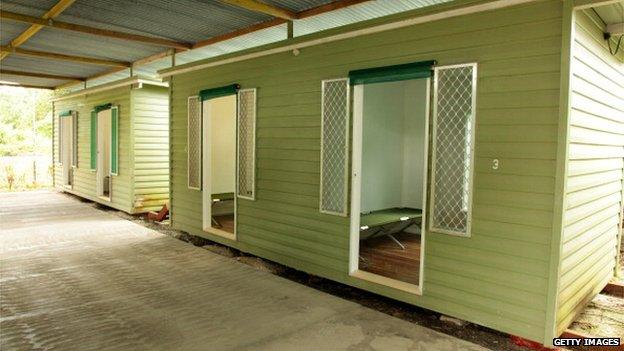
Many asylum-seekers are currently housed in camps on Manus Island in Papua New Guinea (pictured) and Nauru
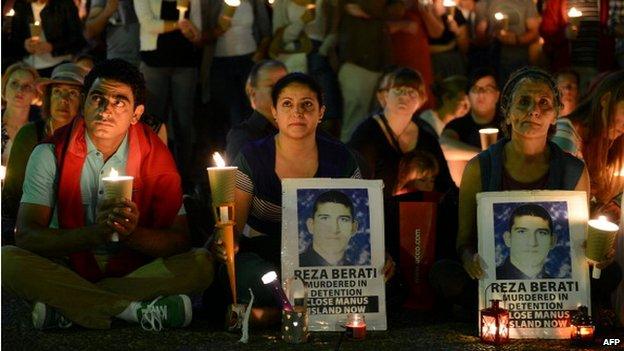
Two Iranians have died as a result of detention in Australia's Manus Island camp in PNG
The group is organising a protest in Sydney on Friday against the Cambodia deal, as well as Australia's decision to bring back temporary visas for refugees.
Mr Morrison introduced legislation into parliament on Thursday after reaching a deal with the Palmer United Party. The visas had previously been abolished by the Labor government of Kevin Rudd.
Two categories of visas - a three-year term and a five-year term - are being proposed. They will apply to those who arrived in Australia before it introduced its policy of resettling refugees who arrive by boat overseas.
Campaigners have said the temporary visas leave refugees' lives in limbo. The visas mean those found to be refugees can be sent home after the fixed protection period elapses if conditions in their home country are judged to have improved.
- Published31 October 2017
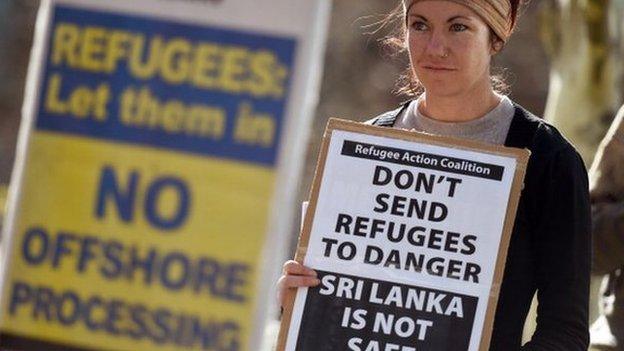
- Published3 September 2014
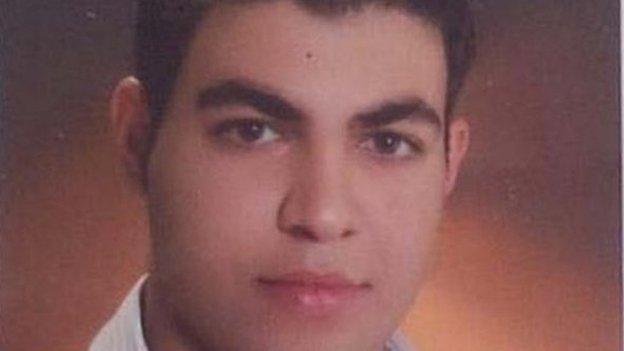
- Published26 May 2014
.jpg)
- Published19 July 2013
